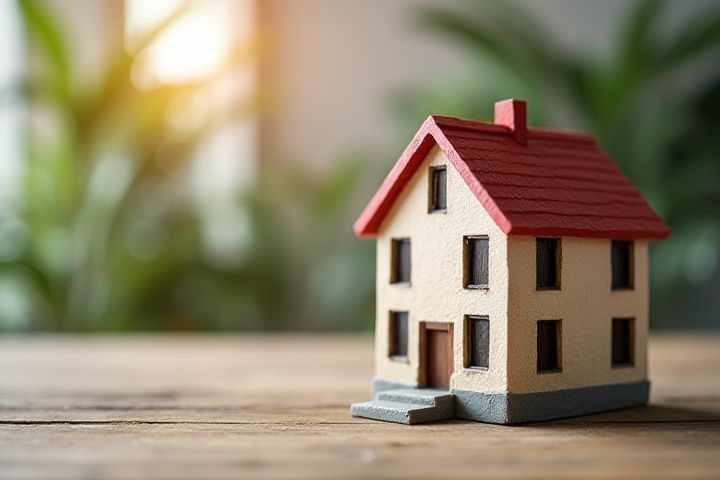
Renovating a house for profit requires a strategic approach, focusing on key areas that maximize value. Begin with kitchen and bathroom upgrades, as these spaces typically yield the highest return on investment. Improve curb appeal through landscaping, painting, and exterior repairs to attract potential buyers. Consider energy-efficient updates, such as new windows and insulation, which can appeal to eco-conscious consumers and reduce long-term costs. Finally, ensure that all renovations align with current market trends to meet buyer expectations and enhance resale value.
How To Renovate A House For Profit
Budgeting
Effective budgeting is crucial for maximizing profit during a house renovation. Start by determining your total available budget, ideally allocating around 10-20% for unexpected expenses. Prioritize essential renovations that increase property value, such as kitchen upgrades or bathroom remodels, which typically yield returns of 60-80% on investment. To further optimize costs, consider DIY projects where feasible, and obtain quotes from multiple contractors to ensure competitive pricing before making any commitments.
Market Research
Conducting thorough market research is essential for a successful house renovation aimed at profit. Start by analyzing the local real estate trends, identifying which neighborhoods show a high demand for housing and where property values are increasing. Utilize online platforms to gather data on comparable home sales, average days on the market, and buyer preferences regarding design features and amenities. This information will guide your renovation choices, ensuring they align with current market demands and maximize your return on investment.
Location Analysis
Location analysis is crucial for maximizing profit during a house renovation. Properties located within a one-mile radius of highly-rated schools, parks, and shopping centers typically see a 10-15% higher market value. Researching neighborhood trends can offer insights; for instance, areas undergoing revitalization may appreciate by up to 20% in just a few years. Consider investing in properties situated in transit-oriented developments, where proximity to public transport can increase rental yields by as much as 25%.
Permits and Regulations
Renovating a house for profit requires a thorough understanding of local permits and regulations to ensure compliance and avoid costly fines. Before starting any renovation project, research building codes, zoning laws, and historical preservation guidelines specific to your area. Securing the necessary permits, such as building, electrical, or plumbing permits, not only validates your work but also enhances the property's market value. Engaging with local authorities and possibly hiring a professional familiar with these requirements can streamline the approval process and safeguard your investment.
Structural Assessment
Conducting a structural assessment is vital for a profitable house renovation. Begin by hiring a licensed structural engineer to evaluate the foundation, walls, and roof for any signs of damage or instability. Assessing potential issues like water intrusion, pest infestations, or settlement cracks can help you prioritize repairs that may significantly enhance the property's value. With a thorough structural assessment, you can make informed decisions about necessary renovations, ensuring a sound investment for a profitable outcome.
Prioritizing High-ROI Upgrades
Focusing on renovations that offer high returns on investment (ROI) can significantly enhance your home's value while maximizing profit. Kitchen remodels, particularly updating countertops and appliances, typically yield substantial returns, often recouping over 70% of costs. Enhancing curb appeal through landscaping improvements, such as planting trees and installing walkways, can also increase property attractiveness and desirability. Upgrading bathrooms, especially with energy-efficient fixtures and modern designs, consistently appeals to buyers and can add considerable value to your home.
Energy Efficiency Improvements
Improving energy efficiency is a key strategy for renovating your house profitably. Start by upgrading insulation in walls, attics, and basements to reduce heating and cooling costs, which enhances home comfort and marketability. Installing Energy Star-rated windows significantly minimizes energy loss and can yield a high return on investment, especially in regions with extreme climates. Additionally, incorporating energy-efficient appliances and smart home technologies can attract eco-conscious buyers and increase your property's resale value.
Quality Materials
Using high-quality materials during your house renovation significantly enhances resale value and attracts discerning buyers. Opt for durable hardwood flooring instead of laminate, and consider energy-efficient windows that not only reduce utility costs but also improve aesthetic appeal. Investing in premium fixtures for bathrooms and kitchens, such as granite countertops or custom cabinetry, elevates the overall look and functionality of these key spaces. By prioritizing quality over quantity, you can create a lasting impression that translates into higher profits when selling your home.
Skilled Labor
Hiring skilled labor is essential for maximizing your renovation profits, as experienced professionals can efficiently execute complex tasks. Investing in qualified electricians, plumbers, and contractors can reduce long-term repair costs and enhance property value. For instance, a well-executed kitchen remodel can yield a return on investment (ROI) of up to 80%, while bathroom upgrades can offer a substantial 70% ROI. Observing local labor market trends can also help you budget for skilled work, ensuring that your renovation stays within financial goals while increasing your property's overall appeal.
Timeline Management
Successful house renovation for profit requires meticulous timeline management, typically spanning 3 to 6 months based on project scope. Start with a detailed project schedule, breaking down tasks into phases such as design, demolition, construction, and finishing. Allocate at least 25% of your timeline for unforeseen delays, like permit approvals or supply chain issues, to avoid exceeding your budget. Regularly review your progress against the timeline to keep your renovation on track and ensure you maximize your investment return.
